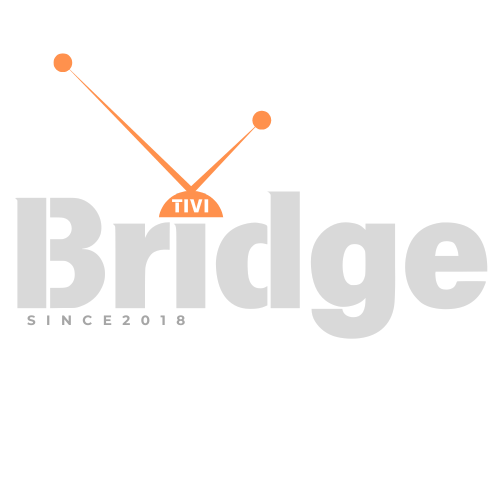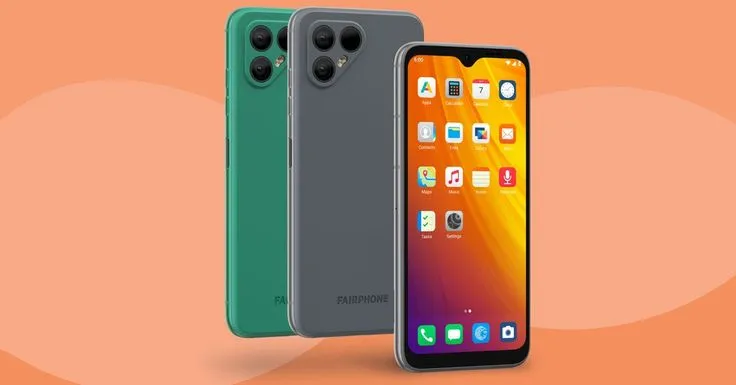Why Your VPN Choice Could Make or Break Your Online Security
5 Things to Consider When Choosing a Secure VPN In today’s digital landscape, where cyber threats lurk around every corner and privacy breaches make headlines daily, choosing a secure VPN has become more critical than ever. With over 4.9 billion internet users worldwide exposing their personal data through unsecured connections, the need for robust online protection cannot be overstated. Whether you’re streaming content, working remotely, or simply browsing the web, your security experience depends heavily on the VPN provider you trust with your digital life.
The challenge isn’t finding a VPN service—it’s finding the right one. With hundreds of VPN providers flooding the market, each promising ultimate security and privacy, the selection process can feel overwhelming. Unfortunately, not all VPNs are created equal, and making the wrong choice could actually increase your security risk rather than minimize it. Some free VPN services, for instance, have been caught selling user data to third parties, defeating the entire purpose of using a VPN in the first place.
This comprehensive guide will walk you through the five most crucial factors you must consider when selecting a secure VPN that truly protects your online activities. From encryption protocols to logging policies, server locations to connection speeds, we’ll explore everything you need to know to make an informed decision. By the end of this article, you’ll have the knowledge and confidence to choose a VPN provider that delivers the security experience you deserve while avoiding common pitfalls that could compromise your digital safety.
Let’s dive into the essential considerations that separate genuinely secure VPN services from those that merely claim to protect your privacy.
1. Encryption Standards and Security Protocols: The Foundation of Your Protection
Understanding VPN Encryption Technology
When evaluating a secure VPN, the encryption standard serves as the bedrock of your digital protection. The most trusted VPN providers implement military-grade AES-256 encryption, which is the same standard used by government agencies and financial institutions worldwide. This encryption method creates a virtually impenetrable tunnel for your data, making it practically impossible for hackers, government surveillance, or internet service providers to intercept and decode your online activities.
However, encryption alone isn’t enough. The protocol that carries your encrypted data through the VPN tunnel is equally important for your overall security experience. Modern secure VPNs offer multiple protocol options:
- OpenVPN: Considered the gold standard for VPN protocols, offering excellent security and performance
- WireGuard: A newer protocol that provides faster speeds while maintaining high security standards
- IKEv2/IPSec: Ideal for mobile devices due to its ability to quickly reconnect after network interruptions
- SSTP: Microsoft’s protocol that works well in restrictive network environments
Why Outdated Protocols Pose Security Risks
Avoid VPN providers that still rely on outdated protocols like PPTP (Point-to-Point Tunneling Protocol) or L2TP without IPSec encryption. These legacy protocols contain known vulnerabilities that cybercriminals can exploit, potentially exposing your data despite using a VPN service. A truly secure VPN will have phased out these vulnerable protocols in favor of modern, battle-tested alternatives.
The National Institute of Standards and Technology (NIST) regularly updates its cybersecurity guidelines, and reputable VPN providers adapt their encryption methods accordingly. When researching potential VPN services, look for providers that transparently discuss their encryption methods and regularly update their security protocols to address emerging threats.
Real-World Encryption Performance
To illustrate the importance of robust encryption, consider the 2014 Heartbleed vulnerability that affected OpenSSL implementations across the internet. VPN providers using strong, properly implemented encryption protocols were able to protect their users, while those with weaker security measures left their customers vulnerable to data breaches. This example demonstrates why choosing a VPN provider with a proven track record of security implementation is crucial for maintaining your security experience.
2. No-Logs Policy: Ensuring Your Privacy Remains Private
The Critical Importance of Data Logging Policies
A secure VPN‘s logging policy determines what information the provider collects, stores, and potentially shares about your online activities. This aspect of VPN service is so fundamental that it can completely negate the privacy benefits of using a VPN if not properly implemented. When a VPN provider maintains detailed logs of your browsing history, connection times, and data usage, your privacy is only as secure as the provider’s data storage and corporate policies.
Genuine no-logs policies mean the VPN service doesn’t record:
- Websites you visit or applications you use
- Your real IP address or assigned VPN server IP
- Connection timestamps and session duration
- Bandwidth consumption or data transfer amounts
- DNS queries or any metadata about your online activities
Verifying No-Logs Claims Through Independent Audits
Unfortunately, some VPN companies make misleading claims about their logging practices. The most reliable secure VPN providers undergo independent security audits by reputable cybersecurity firms to verify their no-logs policies. These audits examine the provider’s infrastructure, code, and operational procedures to confirm that user data isn’t being collected or stored unnecessarily.
For example, ExpressVPN underwent an independent audit by PricewaterhouseCoopers (PwC), while NordVPN has been audited by both PwC and VerSprite. These third-party validations provide concrete evidence that the VPN provider operates according to their stated privacy policies, reducing the security risk of trusting unverified claims.
Legal Jurisdiction and Data Retention Laws
The legal jurisdiction where your VPN provider operates significantly impacts their ability to maintain a true no-logs policy. Countries with mandatory data retention laws or extensive government surveillance programs can force VPN companies to collect and surrender user information, even if they prefer not to do so.
The most privacy-focused secure VPN services strategically locate their headquarters in countries with strong privacy laws and no mandatory data retention requirements. Countries like Switzerland, Panama, and the British Virgin Islands offer robust legal protections for privacy-focused businesses, allowing VPN providers to operate without government pressure to log user activities.
Case Study: The HideMyAss Controversy
A notorious example of why logging policies matter occurred in 2011 when HideMyAss (now part of Avast) provided user logs to law enforcement that led to the arrest of a hacker associated with the LulzSec group. While the company was legally obligated to comply with the court order, this incident highlighted how comprehensive logging can completely undermine the privacy protection that users expect from VPN services.
This case serves as a powerful reminder that your security experience depends not just on technical capabilities, but also on the fundamental business practices and legal obligations of your chosen VPN provider.
3. Server Network Quality and Global Coverage
The Impact of Server Infrastructure on Performance and Security
A secure VPN‘s server network quality directly affects both your security experience and overall satisfaction with the service. The number, location, and quality of servers determine connection speeds, reliability, and your ability to access geographically restricted content safely. Premium VPN providers invest heavily in their server infrastructure, often operating thousands of servers across dozens of countries to ensure optimal performance for users worldwide.
When evaluating server networks, consider these critical factors:
- Server ownership: The best secure VPN services own their servers rather than renting from third parties, providing better security control
- RAM-only servers: Advanced providers use diskless servers that automatically delete all data upon restart, enhancing privacy protection
- Load balancing: Well-managed networks distribute user traffic efficiently to prevent server overload and maintain consistent speeds
- Regular updates: Secure servers receive frequent security patches and software updates to address emerging vulnerabilities
Geographic Distribution and Access Flexibility
A comprehensive server network with global coverage offers multiple benefits for security-conscious users. Having servers in numerous countries allows you to route your connection through different jurisdictions, potentially avoiding local internet restrictions or surveillance. This geographic diversity also provides redundancy—if servers in one region experience issues, you can easily connect through alternative locations without compromising your security experience.
The strategic placement of servers also affects connection speeds and latency. Connecting to a VPN server geographically closer to your location typically results in faster speeds and more responsive internet browsing. However, sometimes routing your connection through a more distant server may be necessary for accessing specific content or enhancing privacy protection.
Specialized Server Types for Enhanced Security
Leading VPN providers offer specialized server configurations designed for specific security needs:
- Double VPN servers: Route your connection through two separate VPN servers for additional encryption layers
- Obfuscated servers: Disguise VPN traffic to appear like regular internet traffic, bypassing VPN detection and blocking
- Tor over VPN: Combine VPN encryption with Tor network routing for maximum anonymity
- Dedicated IP servers: Provide a consistent IP address that isn’t shared with other users, reducing the risk of being blocked by websites
These specialized options allow you to customize your security experience based on your specific privacy needs and the level of protection required for different online activities.
Performance Monitoring and Transparency
Reputable secure VPN providers offer real-time server load information and performance statistics, allowing users to make informed decisions about which servers to use. This transparency demonstrates the provider’s commitment to maintaining service quality and helps users optimize their connection for the best possible security experience.
Some providers publish regular transparency reports detailing server performance, uptime statistics, and any security incidents or government requests they’ve received. This level of openness indicates a trustworthy VPN provider that prioritizes user interests over simply marketing claims.
4. Independent Security Audits and Transparency Practices
The Value of Third-Party Security Verification
In an industry where trust is paramount, independent security audits serve as crucial validation of a secure VPN‘s claims about protection and privacy. These comprehensive examinations by cybersecurity experts provide objective assessments of VPN providers’ infrastructure, policies, and operational practices. When choosing a VPN provider, prioritizing those that regularly undergo and publish results from independent audits significantly reduces your security risk.
Professional security audits typically examine multiple aspects of VPN operations:
- Infrastructure security: Physical and digital security measures protecting server networks
- Code review: Analysis of VPN software for vulnerabilities or backdoors
- Policy compliance: Verification that actual practices match stated privacy policies
- Data handling procedures: Examination of how user information is processed and stored
- Incident response capabilities: Assessment of the provider’s ability to handle security breaches
Transparency Reports and Public Accountability
The most trustworthy secure VPN services publish regular transparency reports detailing government requests, law enforcement inquiries, and any data they were legally required to provide. These reports demonstrate the provider’s commitment to user privacy and provide concrete evidence of how they handle external pressure to compromise user security.
For example, TunnelBear publishes annual transparency reports showing exactly how many government requests they receive and how they respond. In most cases, reputable no-logs VPN providers can truthfully state that they have no user data to provide even when legally compelled to do so, reinforcing the value of genuine no-logs policies.
Open Source Software and Community Review
Some VPN providers enhance their credibility by open-sourcing their VPN client software, allowing independent developers and security researchers to examine the code for potential vulnerabilities or privacy issues. This approach demonstrates confidence in their security implementation and invites community participation in identifying and addressing potential problems.
Open-source VPN clients also provide users with greater control over their security experience, as technically skilled users can compile and verify the software themselves rather than trusting pre-compiled applications. While not all users will take advantage of this capability, the option provides additional assurance that the VPN software operates as advertised.
Bug Bounty Programs and Responsible Disclosure
Leading secure VPN providers often implement bug bounty programs that reward security researchers for identifying and responsibly disclosing vulnerabilities. These programs create financial incentives for cybersecurity experts to help improve VPN security rather than exploiting discovered vulnerabilities maliciously.
The existence of an active bug bounty program indicates that a VPN provider takes security seriously and maintains ongoing efforts to identify and address potential weaknesses in their systems. It also demonstrates a collaborative approach to security that benefits the entire user community.
5. Kill Switch Technology and DNS Leak Protection
Understanding Kill Switch Functionality
A reliable kill switch represents one of the most critical safety features of any secure VPN, acting as your last line of defense against accidental data exposure. This essential technology monitors your VPN connection continuously and immediately blocks all internet traffic if the VPN connection drops unexpectedly. Without this protection, your device might continue transmitting data through your regular internet connection, potentially exposing sensitive information and defeating the purpose of using a VPN.
Modern VPN providers implement different types of kill switch technology:
- Application-level kill switch: Terminates specific applications when VPN connection is lost
- System-level kill switch: Blocks all internet traffic at the operating system level
- Always-on kill switch: Prevents any internet connection unless VPN is active
- Per-app kill switch: Allows customization of which applications are protected
The most effective secure VPN services offer comprehensive kill switch protection that activates automatically without requiring user intervention, ensuring your security experience remains uncompromised even during technical difficulties.
DNS Leak Protection and Privacy Preservation
DNS (Domain Name System) leaks represent a significant but often overlooked security risk for VPN users. Even when your internet traffic is properly encrypted and routed through VPN servers, DNS queries can potentially bypass the VPN tunnel and reveal information about websites you’re visiting to your internet service provider or other monitoring entities.
A truly secure VPN implements robust DNS leak protection by:
- Using private DNS servers: Routing all DNS queries through VPN-controlled servers
- Implementing DNS over HTTPS: Encrypting DNS queries to prevent interception
- Blocking IPv6 leaks: Preventing newer internet protocol versions from bypassing VPN protection
- Providing DNS testing tools: Allowing users to verify their connection security
Real-World Testing and Verification
To ensure your chosen VPN provider offers reliable kill switch and DNS leak protection, you should test these features using various online tools and techniques. Websites like DNSLeakTest.com and IPLeak.net provide free testing services that can reveal whether your VPN connection properly protects your privacy.
Regular testing is particularly important because software updates, operating system changes, or network configuration modifications can sometimes interfere with VPN protection features. Users who prioritize their security experience should periodically verify that their VPN continues to function as expected.
Mobile Device Considerations
Kill switch and DNS leak protection become even more critical on mobile devices, which frequently switch between different network connections (Wi-Fi, cellular data, etc.). The best secure VPN services offer mobile applications with robust protection features specifically designed to handle the unique challenges of mobile internet connectivity.
Mobile VPN apps should maintain protection even when the device switches networks, goes into sleep mode, or experiences temporary connectivity issues. Look for VPN providers that specifically address mobile security challenges and provide detailed documentation about how their mobile protection features work.
Additional Security Features Worth Considering
Split Tunneling and Application Control
Advanced secure VPN services offer split tunneling functionality, allowing users to route some applications through the VPN while others use the regular internet connection. This feature provides flexibility for users who need to access local network resources while maintaining VPN protection for sensitive activities. However, split tunneling requires careful configuration to avoid inadvertently exposing private information through unprotected applications.
Multi-Platform Support and Simultaneous Connections
Your security experience benefits significantly when your VPN provider offers comprehensive support across all your devices. Look for services that provide native applications for Windows, macOS, iOS, Android, and Linux, along with router support for protecting devices that don’t support VPN software directly.
Most premium secure VPN services allow multiple simultaneous connections under a single account, enabling protection for all your devices without additional costs. This feature is particularly valuable for families or individuals with multiple devices requiring VPN protection.
Customer Support and Technical Assistance
Quality customer support can make the difference between a positive and frustrating security experience. The best VPN providers offer 24/7 technical support through multiple channels, including live chat, email, and comprehensive documentation. Knowledgeable support staff can help resolve configuration issues, troubleshoot connectivity problems, and provide guidance on optimizing your VPN setup for maximum security.
Streaming and Entertainment Access
While security remains the primary concern when choosing a secure VPN, many users also value the ability to access geographically restricted streaming content. Premium VPN providers maintain servers specifically optimized for streaming services, allowing users to safely access their favorite content while traveling or living in regions with limited entertainment options.
For users interested in streaming capabilities, finding an easy way to watch the latest movies with the lowest price through secure VPN connections can enhance your entertainment experience while maintaining privacy protection.
Common VPN Selection Mistakes to Avoid
The Free VPN Trap
One of the most dangerous mistakes when seeking a secure VPN is choosing a free service without understanding the underlying business model. Many free VPN providers generate revenue by collecting and selling user data, serving advertisements, or limiting service quality to encourage paid upgrades. This practice directly contradicts the privacy protection that users expect from VPN services.
Free VPNs often present significant security risks including:
- Data collection and sale: Monetizing user browsing data and personal information
- Malware injection: Inserting advertisements or malicious code into web pages
- Limited encryption: Using weak security protocols that provide minimal protection
- Bandwidth limitations: Restricting data usage to encourage paid subscriptions
- Server overcrowding: Providing poor performance due to inadequate infrastructure investment
Falling for Marketing Hype Over Substance
The VPN market is saturated with providers making exaggerated security claims and unrealistic performance promises. Avoid VPN providers that make the following misleading claims:
- “100% anonymous” or “completely untraceable” internet access
- “Military-grade security” without specific technical details
- “Blazing fast speeds” without acknowledging that VPNs inherently add some latency
- “Works in all countries” without mentioning that some regions actively block VPN usage
Ignoring Terms of Service and Privacy Policies
Many users make the critical mistake of not carefully reading VPN terms of service and privacy policies before subscribing. These documents contain crucial information about data handling practices, logging policies, and legal obligations that directly impact your security experience. Take time to understand what you’re agreeing to before trusting a VPN provider with your sensitive information.
Future-Proofing Your VPN Choice
Emerging Technologies and Standards
The VPN industry continues evolving with new technologies and security standards. When selecting a secure VPN, consider providers that demonstrate commitment to adopting emerging technologies like:
- Quantum-resistant encryption: Preparing for future quantum computing threats to current encryption methods
- Zero-knowledge architecture: Implementing systems where even the VPN provider cannot access user data
- Decentralized VPN networks: Distributing VPN infrastructure to reduce single points of failure
- Advanced traffic obfuscation: Developing more sophisticated methods to bypass VPN detection and blocking
Regulatory Landscape Changes
Government regulations and international privacy laws continue changing, affecting how VPN providers can operate and what data they must collect or share. Choose providers that proactively adapt to regulatory changes while maintaining their commitment to user privacy and security.
Looking for Premium Channels, Sports, and 4K Streaming?
Don’t miss out on these top-rated IPTV services – all at unbeatable prices!
🔥 TiviBridge – Ideal for sports lovers & international content
🎬 Iptvbridge – Perfect for live TV, movies & entertainment
💰 TiviPlanet – Best value for budget-conscious streamers
🚀 Start Your IPTV Business Today!
Get instant access to a powerful Reseller IPTV Panel with competitive pricing, advanced features, and 24/7 support. Join TiviBridge and grow your own IPTV empire with ease!
👉 Start your FREE trial now and elevate your viewing experience with seamless, high-quality streaming!
FAQ: Secure VPN Selection Guide
What is the most important factor when choosing a secure VPN?
The most critical factor is the VPN provider’s logging policy and encryption standards. A truly secure VPN implements a verified no-logs policy with military-grade AES-256 encryption, ensuring your online activities remain private and protected from interception.
How can I verify that a VPN provider actually follows their no-logs policy?
Look for VPN providers that undergo regular independent security audits by reputable cybersecurity firms. These audits verify that the company’s actual practices match their stated policies. Additionally, transparency reports and public incident responses can provide insight into how providers handle legal requests for user data.
Should I avoid all free VPN services?
While not all free VPNs are inherently dangerous, most free services present significant security risks because they need alternative revenue sources. Many free providers collect and sell user data, inject advertisements, or provide inadequate security protection. If you must use a free VPN, research the provider’s business model and privacy practices carefully.
What’s the difference between a kill switch and DNS leak protection?
A kill switch blocks all internet traffic when your VPN connection drops, preventing accidental data exposure. DNS leak protection ensures that your domain name queries are routed through the VPN servers rather than your ISP’s DNS servers, preventing websites you visit from being revealed to third parties.
How many simultaneous connections should a good VPN service allow?
Most premium secure VPN services allow 5-10 simultaneous connections per account, which is sufficient for individual users with multiple devices. Some providers offer unlimited connections, while others may limit to 3-5 devices. Consider your specific needs when evaluating connection limits.
Is it safe to use a VPN for streaming movies and TV shows?
Using a secure VPN for streaming is generally safe from a technical security perspective. However, you should be aware of the terms of service for streaming platforms, as some prohibit VPN usage. For legal streaming options, consider services that offer easy ways to watch the latest movies with competitive pricing.
Can my internet service provider detect that I’m using a VPN?
Your ISP can typically detect that you’re using a VPN by analyzing traffic patterns and connection destinations, but they cannot see what websites you visit or what data you transmit. Some VPN providers offer obfuscated servers that make VPN traffic appear like regular internet activity, providing additional privacy.
How often should I change VPN providers?
You don’t need to change VPN providers frequently if your current service continues meeting your security needs and maintaining good practices. However, you should reassess your choice annually or when significant changes occur, such as the provider being acquired by another company, changes in logging policies, or security incidents.
Conclusion: Making the Right Choice for Your Digital Security
Selecting a secure VPN requires careful consideration of multiple technical and operational factors that directly impact your online privacy and security. The five critical considerations we’ve explored—encryption standards, logging policies, server infrastructure, independent audits, and essential security features—provide a comprehensive framework for evaluating potential VPN providers and making an informed decision that protects your digital life.
Remember that the cheapest option is rarely the best choice when your privacy and security are at stake. Investing in a reputable secure VPN with verified no-logs policies, robust encryption, and comprehensive protection features provides far better value than risking your sensitive information with unreliable services. The security experience you receive from a premium VPN provider justifies the investment when you consider the potential costs of data breaches, identity theft, or privacy violations.
As cyber threats continue evolving and government surveillance expands, the importance of choosing the right VPN provider will only increase. The security landscape changes rapidly, but the fundamental principles outlined in this guide will help you evaluate VPN services effectively regardless of how the technology evolves.
Your digital privacy is invaluable, and protecting it requires more than just installing VPN software—it demands choosing a secure VPN service that genuinely prioritizes user security over profit margins. By applying the criteria discussed in this guide, you can confidently select a VPN provider that delivers the protection and peace of mind you deserve.
Take Action: Secure Your Digital Life Today
Don’t wait until your privacy is compromised to take action. Research potential VPN providers using the criteria outlined in this guide, and choose a service that meets your specific security needs and budget. Remember to test your VPN’s protection features regularly and stay informed about changes in the privacy landscape that might affect your security experience.
Have you implemented any of these VPN selection criteria in your own research? Share your experiences and questions in the comments below, and help others make informed decisions about their digital security. Your insights could help fellow readers avoid common pitfalls and find the secure VPN solution that best protects their online activities.
For the latest updates on VPN technology, cybersecurity trends, and digital privacy protection, subscribe to our newsletter and follow us on social media. Together, we can build a more secure and private internet for everyone.
Sources:











